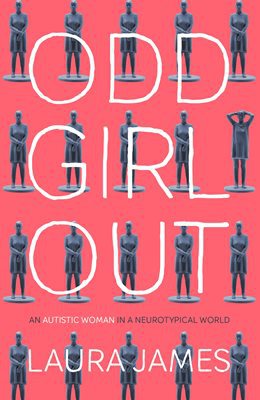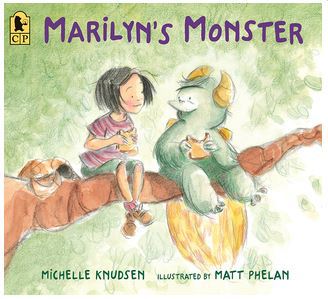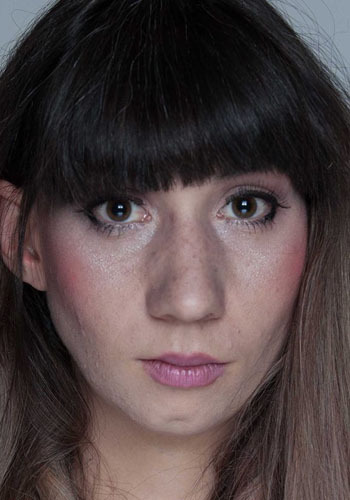
As a young child I loved reading. I was a prolific reader, and would often read at least 7 books a week. I would pick a particular type of book and would obsessively read through everything I could get my hands on. My routine as a child would be to go to the library on a Saturday morning after the food shop. Every Saturday afternoon I’d have the same routine, a supermarket sandwich, a can of drink and a big pile of books on my bed to read, it felt like Christmas every time. One of my biggest obsessions were Enid Blyton books – before the days of Ebay and Amazon I would trawl second hand book stores with my parents looking for missing books which I didn’t have. I especially liked the ones which were old. I loved the fantasy world her books would take me into, and I would often re-read certain books a number of times. I had a difficult relationship with my Dad as a child, and reading was my escape. I recall packing an old fashioned suitcase to go on holiday and the only things I filled it with were books. I still have my collection of Enid Blyton books, and although I don’t read them any more I can’t bear to part with them as they played such a big part of my childhood. I’d always hoped my daughter would share this interest, but sadly it’s not to be, she has her own book obsessions which don’t follow the same themes as mine. She does however love Rupert annuals, which was always the highlight of my Christmas day – getting one in my stocking, a tradition I’ve carried on for her. If she is eating alone at the table there is nearly always a Rupert book propped up in front of her. I loved the magic of hidden doors and strange kingdoms, where life was much simpler. The pictures helped me to visualize the characters which I don’t tend to do when reading books which are just text.
I had a difficult time in primary school and I recall one particular incident where I’d made a best friend quite early on, but they’d moved onto another group of friends, I desperately wanted to be included in this group, but found it so hard to fit in. When they included me one day I remember how happy I felt, until they turned round and said it was all pretend and they didn’t like me at all. Ostracized, I turned to the school library, I didn’t need to worry about approaching people there, I could spend my lunch time reading without being bothered by anyone. It became a place I often turned to over the years.
As an adult I’ve had an on/off relationship with reading, I still love to read, but have such specific tastes I often get stuck once I finish a particular series of books, not then knowing where to begin again. I was recently particularly unwell due to suffering a big dip in my mental health. When the therapist suggested reading as a way of ‘self soothing’ I didn’t pay it much attention. I did however look on Amazon and selected a book based on a previous read – the book was by an Author called Cathy Glass. She writes about her experiences of being a foster parent of particularly challenging children or situations. At present I am quite focused on stories which are true to life, so her book appealed to me. There was something about her comforting tone of writing, and familiar phrases and terminology which made me feel comforted too. Some of the things she did to help children I could apply to my life too. Her books took my mind off the difficult thoughts I was having. Reading had yet again proved to be a strong comfort.
I recently read about a lady called Laura James, who like myself was diagnosed to be on the Autism Spectrum later in life. I followed her on Twitter and found it comforting to read I’m not alone in some of the experiences I have. A lot of the press about Autism talks about the issues which children have, which is massively important, but what happens when the children grow up, have relationships, employment, have children themselves? When Laura’s publisher offered bloggers the chance of a copy of Laura’s book to review I jumped at the chance. The book is called Odd Girl out and is available on Amazon. I was desperate to read about how someone else felt and how they dealt with receiving a diagnosis. Reading the book was like having a literary hug, it reminded me of the feeling I had when the therapist I saw last year recognised everything I struggled with and empathised with me. From the very beginning of the book where Laura is taking in the information written in the report about her, it rang true to me. The ‘cold analysis’ of how the disorder relates to her. When I received the report with my diagnosis a few months ago it was hard reading, it focused on what I find most difficult only. Laura talks about the impact of the diagnosis on herself and her partner, focusing initially on them being on holiday after receiving it. It’s interesting to read her perceptions of her partners reaction to it and how they handle it as a couple. Throughout the book Laura is open and frank about her difficulties, and this appeals to me, there is no sugar coating and statements are backed up with information taken from experts. A few people I’ve mentioned my diagnosis to have reacted with comments such as ‘you must be really low on the spectrum’ or ‘everyone is on it somewhere’ ‘you manage to function really well as a parent, have a job etc, so there can’t be much wrong with you’. All these comments have made me feel guilty, question my diagnosis and wonder why things are so hard every day. On page 144 Laura talks about her meeting with Dr Judith Gould, a charted psychologist with over 40 years experience. Laura explains that Judith believes ‘the key point to understand is that autism is a spectrum not because it’s linear, but any factor can be present at any point’ Judith said (in our study) ‘We saw the classic autistic aloof person with repetitive rituals and elaborate routines. But we also saw children with aspects of social difficulties, communication difficulties and imagination difficulties who didn’t fit with earlier precise criteria’ These sentences and the rest of this chapter went some way to explaining things to me which will help me in the future when explaining my diagnosis to others.
In her book Laura talks about the difficulty she has with her boys leaving home, going through a grieving process. Although everyone finds grief hard to deal with (on whatever scale) having friends and family to fall back on can really support this. If you find communicating with people difficult and for those reasons don’t have those relationships to fall back on it’s hard to know what coping mechanism to use, how easy is it to gravitate towards unhelpful ones. Laura honestly explains how she rarely sees family and has one friend she sees once every 18 months or so. This clarified to me why I’ve found so many things hard to cope with when I go to such extents to isolate myself from others at times.
When I had my diagnosis I was desperate to read information about how I could be a better person, find things less difficult. I asked my care co-ordinater to find me some adult resources, she struggled, as I had, to find anything so specific. I am a solution based person and I am always looking at ways to resolve things. I enjoyed how towards the end of Laura’s book she talks about the things she had tried to find a middle ground with her partner, it felt hopeful that there are ways to live harmoniously whilst accepting things which someone may find difficult. She also provides useful help and advise in respect of managing difficulties which cause her problems on a day to day basis, which I am sure others will find helpful. I can see Laura’s book being very useful to many people, and I hope that it makes its way onto resource lists within the NHS and Mental Health Services. Laura quotes autism trainer Sarah Hendrickx in saying ‘its about realising that you are not alone and there are lots of people out there who get you’ – this is what Laura’s book mean’t to me.
Advertisements Share this:





